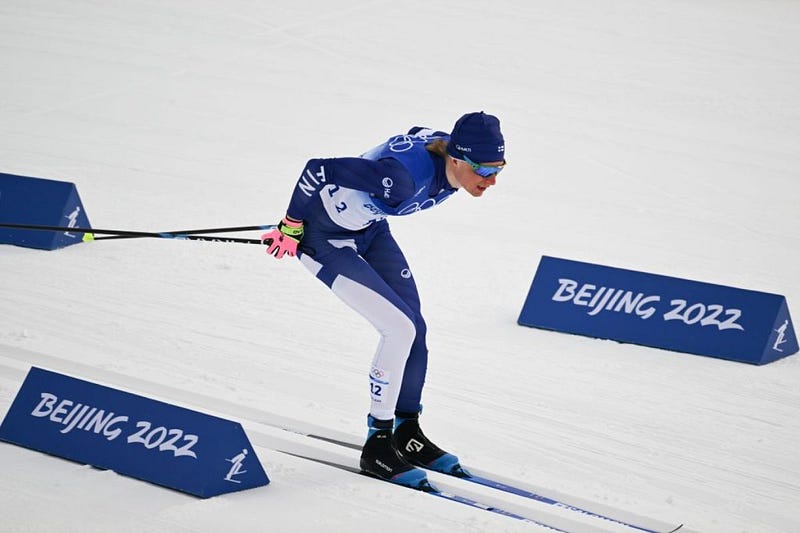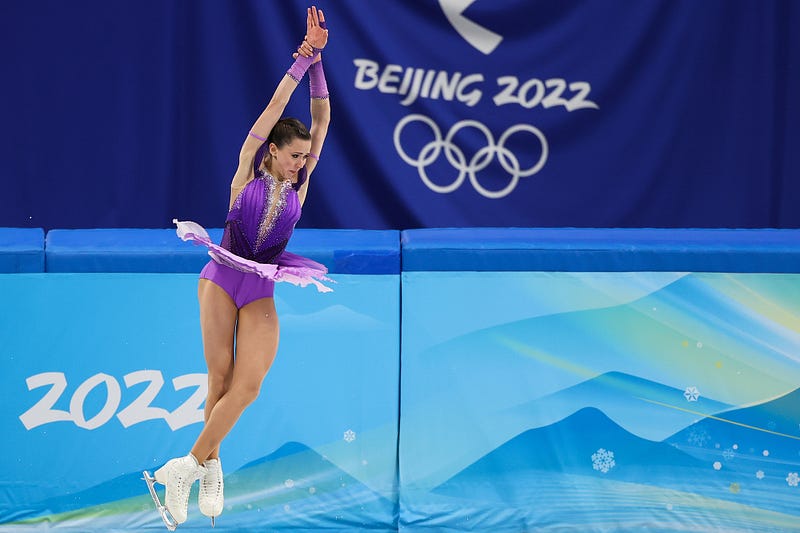
The Olympic Games are a culmination of sporting excellence. Athletes from all over the world convene to compete in all kinds of different sports as millions of people watch in awe. It is a massive spectacle that has produced iconic moment after iconic moment.
The Games flopped this year.
Kamila Valieva, a 15-year-old Russian figure skater, was at the center of controversy. She tested positive for trimetazidine, a banned drug. She was allowed to compete due to the theory that if she did not, she would suffer irreparable emotional harm. To make this decision was to put Valieva ahead of the other figure skaters, whose tests were clean, but there was some logic to it. Valieva is 15; it is unlikely that she masterminded a drug scheme. There are theories that her coach, Eteri Tutberidze — who has a history of pupils with injuries or diet restrictions as a result of her training methods — is responsible. In whatever fashion, Valieva, the gold medal favorite, was let down by the adults in her life. She was allowed to compete after testing positive for a drug reported to increase endurance. She had a poor run, finishing fourth, then her coach asked the already miserable Valieva “Why did you stop fighting?” It was a disastrous show all around.
There were other administrative disasters. Due to high winds, ski practice was canceled on Feb. 5, and according to medal contender Marco Odermatt, the International Ski Federation turned off their radio after minimal communication. On Feb. 12, women’s alpine downhill practice was canceled due to snowfall. The cancellation was more due to the volume of snow than the snow itself, but that did not stop the decision from being roundly mocked on social media.
Peng Shuai, whose safety and freedom have been in doubt since sexual assault allegations against Zhang Gaoli were scrubbed from Weibo months ago, has spoken with the International Olympic Committee (IOC). They published an hour-long interview with her. Several of her comments recently have walked back her initial sexual assault allegations, saying it never happened. Considering the silencing nature of the Chinese Communist Party, popular sentiment is that Peng is being coerced to contradict her allegations. However, IOC spokesperson Mark Adams refused to support this theory: “I don’t think it’s for us to be able to judge, in one way, just as it’s not for you to judge either,” he said on Feb. 7. Adams’s statement, and the content of the interview — much of it regarding Peng’s retirement from professional tennis, which is odd given all the concern over her safety — lead one to believe that the IOC is interested only in allaying fears about the Games being held in Beijing, not Peng’s well-being. Her freedom remains very much in doubt.

.
Photo courtesy of New York Post.
Predictably yet depressingly, dozens of athletes tested positive for COVID-19. Mikaela Shiffrin, who many expected to win a medal, underperformed at her events. The media jumped on her like a starving tiger. Her grace in the wake of the excessive backlash was one of the few proud moments of the Games. Remi Lindholm froze his penis during the 50-kilometer cross country skiing event. Due to conditions, the start was delayed and the race shortened to 30 kilometers, but for Lindholm, who had to use a heat pack to revive his frozen organ, it did not matter. “The pain was unbearable,” he said.
Then there were the usual Olympic concerns. Time after time, host countries have not been able to maintain the massively expensive facilities used to house the events. The system of rotating hosts has drained many cities of funds, while leaving clunky stadiums on their hands that are expensive to maintain but difficult to get rid of. No one wins. With only local spectators permitted to watch the Games on site this year, revenue presumably took a considerable hit.
There were token heartwarming moments at the Games, but they seemed to be dwarfed by the screwups. NPR published an article by Jaclyn Diaz, Tom Goldman and Brian Mann on Feb. 21 called “9 moments that resonated at the 2022 Beijing Winter Olympics.” The first line of the article read “The 2022 Beijing Winter Games will likely be remembered for being yet another ‘COVID Olympics.’”
It is always amazing to watch the best athletes in the world compete against each other. At their best, the Olympics feel worthy of the declaration at the top of their website: “…the Olympics are where the world comes to compete, feel inspired, and be together.” This year, though, the specter of global turmoil loomed large and the IOC’s errors did not help, leaving the Games — an event of flagging purpose, you could argue — feeling as lifeless as they ever have.
























